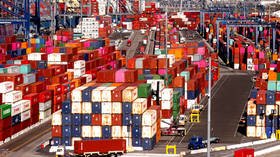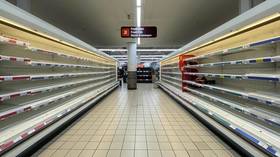Why global supply crisis is here to stay

The global supply chain is broken. Experts point out to a perfect storm of issues that have combined to break a system that used to run relatively smoothly.
The Covid-19 pandemic has impacted trade around the world, causing product shortages and pushing up prices. The ongoing disruptions are hitting global growth.
What are global supply chains?
Global supply chains are networks that span all continents and countries for the purpose of sourcing and supplying goods and services. It is the system of getting things from A to B and is the basis of the global economy. When the movement of goods stops, a global supply crisis starts.
How did the global supply crisis start?
The rapid spread of coronavirus in 2020, which prompted lockdowns and industry shutdowns around the world, led to lower consumer demand and reduced industrial activity.
As lockdowns were lifted and demand soared, manufacturers and distributors of goods got caught up in chaos as they couldn’t produce or supply as much as they did before the pandemic.
Why is there a shortage of everything?
The surging demand was met with limited supply of everything. Ports, warehouses, and trucking companies have been experiencing labor shortages. Lack of containers limited the amount of goods available for export, resulting in overloaded warehouses. Even when containers of goods arrived at the ports, there was a shortage of container chassis for truckers to haul loaded containers. Moreover, the ports that were full of loaded containers, did not have enough space to receive empty containers back. All of that was causing disruptions for arriving ships to unload.
What are the most affected sectors?
Supply chain bottlenecks have affected a variety of sectors, services, and goods. Those range from shortages of electronics and automobiles, where problems were exacerbated by the semiconductor chip shortage, to difficulties in the supplies of meat, medicines, and household products. Power shortages in the world’s manufacturing superpower, China, have added to the crisis.
Why are prices rising?
Shipping goods across the globe has become more expensive than ever as temporarily shuttered port terminals have been spawning backlogs at some of the world's largest ports. This, combined with goods shortages amid higher demand, has led to rising prices for all consumer goods.
When could the crisis end?
As economies get back on their feet, the supply chain crisis is still one of the biggest challenges governments face. The issue is now looming large ahead of Christmas, with this year’s holiday shopping season projected to be among the most expensive ever.
Global shipping operations won’t return to normal until the end of 2022, according to expert estimates. Economists say supply chain disruptions will continue well into 2023, despite global efforts to mitigate the issue.
For more stories on economy & finance visit RT's business section














